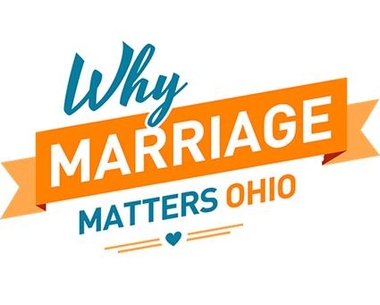Ohio's gay marriage debate goes beyond courtroom

Columbus, Ohio (AP) — The debate over Ohio's ban on gay marriage extends beyond the courtroom to libraries, community centers, living rooms and city streets.
Supporters of same-sex marriage are holding town hall meetings and house parties to try to sway more Ohioans to their side. Other backers have circulated petitions at festivals and parades in a push to put the issue before voters. And opponents say their volunteers and 10,000 churches are ready to counter the efforts.
As a three-judge federal appeals panel prepares to hear two challenges to the state's ban on Aug. 6, groups have been mobilizing for action beyond any court decision.
"We can't rely solely on the court," said Ian James, the co-founder of FreedomOhio, an organization supporting same-sex marriage.
The group collected about 650,000 signatures over the past two years as part of a ballot effort to repeal and replace Ohio's prohibition on gay marriage.
But its proposal won't go before voters this fall. The campaign's plans were derailed in part by a lack of money. Organizers also revised the constitutional amendment to ease other gay rights activists' concerns about the wording. The changes meant they had to start over and get new voter signatures.
James said support was there from Ohioans to overturn the ban in November, even if the money wasn't.
"We will continue to collect and put the issue before voters, so that LGBT families have the freedom to marry and houses of worship have the freedom to perform a marriage," James said.
Several leading gay rights groups opposed putting the issue on the ballot this year, contending Ohioans remain too closely divided to guarantee victory.
Surveys indicate the same. A May poll by Quinnipiac University shows Ohio voters support allowing same-sex couples to wed, 50 percent to 43 percent.
Instead of throwing their weight behind the ballot effort, national organizations Freedom to Marry and the Human Rights Campaign joined the state-based Equality Ohio and others to start the "Why Marriage Matters Ohio" campaign. The coalition is recruiting faith leaders, small businesses, elected officials and volunteers to talk to Ohioans about same-sex marriage in an effort to change minds and increase support for gay marriage among residents.
"Marriage equality is coming," said Michael Premo, the campaign's manager. "It is not a matter of if; it's a matter of when."
Ohio's ban has no chance of being overturned by the state's Republican-controlled legislature. So the group is waiting to see whether the U.S. Supreme Court legalizes same-sex marriage nationwide next year before it considers a ballot initiative.
Gay marriage proponents have won more than 20 legal decisions around the country since the nation's high court struck down a key part of the federal Defense of Marriage Act last year.
Marc Solomon, Freedom to Marry's national campaign director, said given those victories, the organization's focus for now is on the courts. The state also is a top investment priority for the group. It's spending $500,000 to support Why Marriage Matters Ohio's campaign offices and organizers in Cincinnati, Columbus, Toledo and Cleveland.
"If we don't prevail in the court, we are absolutely laying the groundwork for a ballot fight," Solomon said.
The coalition would plan to ask voters to overturn the state's ban in 2016 — when more supporters would likely turn out in the presidential election year.
In a bellwether state closely watched for its presidential vote, the stakes for a gay marriage victory are high.
"When we win Ohio, that's the ball game," Premo said. "Because when we win in Ohio, that will say to states across the county that it's possible there, too."
Opponents of same-sex marriage say Ohioans already decided the issue in 2004, when 62 percent of voters supported the state's constitutional amendment to ban it.
The leader of a conservative group that promoted the amendment's passage said its backers would be prepared to defend it.
Phil Burress, president of the Ohio-based Citizens for Community Values, said his organization has a voter database of supporters, volunteers and 10,000 churches prepared to get people to the polls as they did in 2004.
"We're mobilized," Burress said. "We're ready whenever they decide to launch their campaign. But in the meantime, we're not sure they're ever going to be on the ballot."
Columbus resident Claire Bramli is among those wanting to vote on the issue. She and her fiancee, who is a transgender woman, hope to get married in Ohio.
"All these states are striking it down," Bramli, 40, said while watching a gay pride parade last month. "Why not give us a chance?"
by Ann Sanner, Associated Press
Copyright 2014 The Associated Press. All rights reserved. This material may not be published, broadcast, rewritten or redistributed.
The Gayly – August 2, 2014 @ 10am





